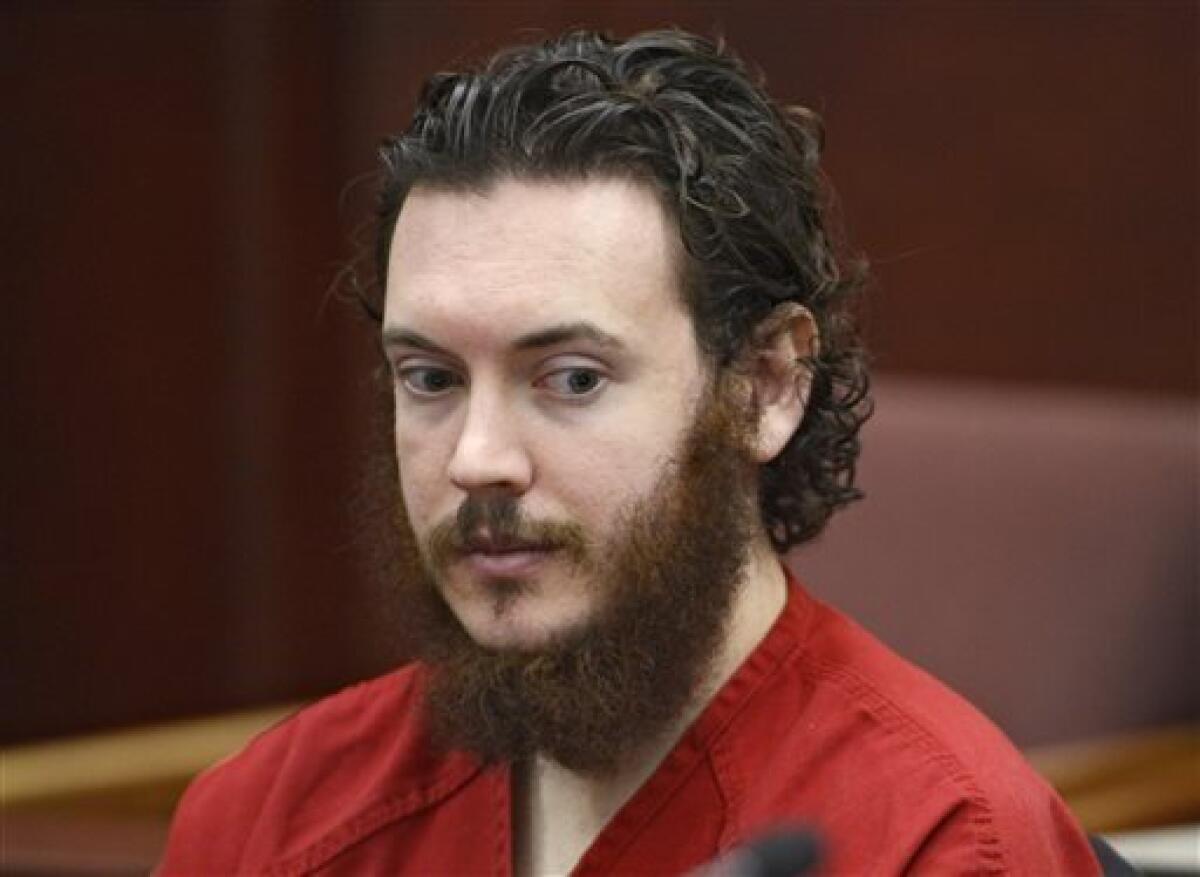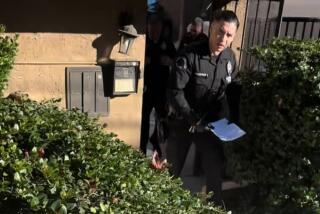Theater rampage: James Holmes’ rights violated, lawyers say

- Share via
CENTENNIAL, Colo. — James E. Holmes’ defense attorneys said Thursday that police had prevented them from seeing their client for at least 13 hours after his arrest on suspicion of shooting up an Aurora movie theater.
The attorneys were trying to persuade a judge that officers had violated Holmes’ constitutional rights and that that his statements should not be used against him at trial. He is charged with killing 12 people and wounding 70 others in the July 20, 2012, rampage. His attorneys acknowledge he was the shooter but contend he was insane at the time.
The allegations came during a day of dramatic and often testy exchanges as prosecutors and defense attorneys battled over what evidence can be admitted during Holmes’ upcoming murder trial. He has pleaded not guilty by reason of insanity.
The latest evidence in dispute is a set of statements Holmes made to investigators seeking to disable the elaborate array of explosives found in his apartment after the attack.
Holmes’ trial is scheduled to start in February. Prosecutors are seeking the death penalty, which would require them to prove he understood the consequences of his attack.
During the pretrial hearing Thursday, defense attorney Tamara Brady aimed pointed questions at police. Officers acknowledged that Holmes had asked for a lawyer, and that two defense lawyers had asked to see him, but that no such meeting took place for at least 13 hours.
It was not clear from the testimony when Holmes did meet with an attorney.
Attorney Iris Eytan, who briefly served as Holmes’ lawyer, testified that she had demanded investigators not question Holmes.
Authorities testified that they questioned Holmes anyway, asking him about explosives in his apartment without a defense attorney present. Prosecutors said the questioning was legal because investigators urgently needed to ask Holmes about the bombs to prevent a deadly explosion.
Aurora Police Lt. Thomas G. Wilkes, commander of the team that sealed off Holmes’ apartment, said the bombs were so dangerous that officials considered detonating them — which they knew would destroy Holmes’ building and threaten others — rather than risk the lives of bomb squad members by trying to dismantle them.
Ultimately, police disarmed the bombs without explosions.
Holmes was questioned about the bombs about 14 hours after the shootings.
Brady noted that a police audio recording of Holmes’ answers doesn’t include the first few minutes, and there’s no way of knowing what officers told him.
“I assume you did not tell him these statements would be used to get his death,” she said to Aurora Det. Craig Appel.
“We didn’t talk about death,” Appel replied. “There had been enough death that day.”
Appel said he had inadvertently turned his recorder off and that he turned it on when he discovered the problem.
Arapahoe County Judge Carlos A. Samour Jr. hasn’t said when he will rule on whether Holmes’ statements can be used.
Even if he excludes the statements, prosecutors still have a strong case given that Holmes has acknowledged carrying out the attack, legal analysts say.
Holmes’ statements could help prosecutors argue he was sane, said Dan Recht, a longtime Denver defense lawyer not involved in the case.
“It’s the prosecution’s view that those statements show a degree of forethought and a degree of articulateness that are indications of a sane person and not an insane person,” Recht said.
ALSO:
Graphic Halloween decorations prompt 911 call
Special prosecutor to reexamine Maryville rape case
Follow L.A. Times National on Twitter
More to Read
Sign up for Essential California
The most important California stories and recommendations in your inbox every morning.
You may occasionally receive promotional content from the Los Angeles Times.









